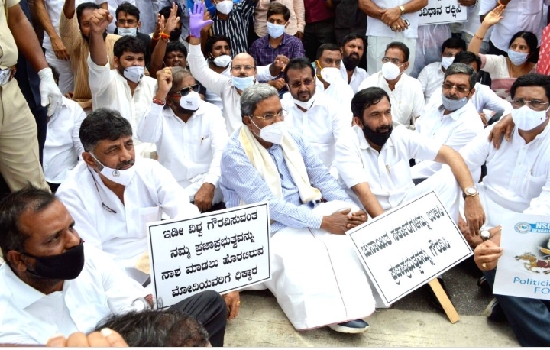New Delhi, Oct 9: The Gujarat high court (HC) on Monday reduced to 'life in prison' the death sentence given to 11 convicts in the 2002 Godhra train burning case.
A special trial court had on March 1, 2011, convicted 31 people and acquitted 63 of setting ablaze a coach of the Sabarmati Express on February 27, 2002 at Godhrastation. Of the 31 convicts, 11 were sentenced to death and 20 were given life in prison for All the convicts had appealed their conviction.
On Monday, a division bench of justice AS Dave and justice GR Udhaari upheld life imprisonment for the 20 other convicts in the case and refused to alter the acquittal order for 63 accused.
Further, it observed that the state government and the Railways failed miserably in maintaining law and order during the 2002 incident.
The HC then directed the government and the Railways to pay Rs 10 lakh each to the families of those killed in the Godhra train burning incident.
In 2011, the 63 persons the Gujarat HC acquitted included Maulana Hussain Umarji, who was dubbed by the Gujarat police as the 'mastermind' of the carnage. Out of over 130 accused persons, 94 could be put on trial before the trial court. Even after the trialcourt delivered its verdict on February 22, 2011, some of the accused were nabbed and put on trial.
The Gujarat government and the special investigation team that probed the incident had sought confirmation from the Gujarat high court to the death sentence given to 11 by the trial court. The government also demanded the maximum punishment for the 20 people given life imprisonment. Besides, it questioned the acquittal of 63 persons. The kin of the fire victims' too have sought death for all accused persons.
As many as 59 passengers including many 'kar sevaks' returning from Ayodhya were killed in coach S 6 of the Sabarmati Express when a violent mob attacked the train near Godhra railway station on February 27, 2002. The incident sparked state wide sectarian violence that claimed the lives of nearly 1,200 over two months.






Comments
Its not tragedy... Its riot with intention
I have only one relief, Modi doing everything (petrol price hike, lies about army, scams, gst, demonetisation) for our nation's progress
No hope in Modi govt. People made big mistake by electing him
Total injustice.. shame
Feku's rule... Feku's place and Feku's people
That place itself showing how the verdict is.
Verdict in favor of sangh parivar. Justice is blind
Add new comment